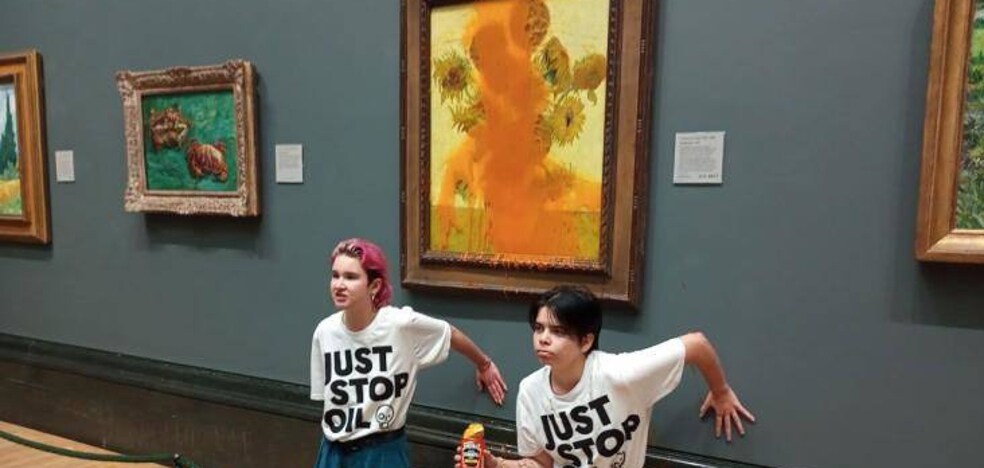The unorthodox musician and composer presents this Friday the songs of ‘Ruibal’, a “unique” album composed during the incarceration
More than thirty years of experience have led Javier Ruibal (El Puerto de Santa María, Cádiz, 1955) to explore all kinds of melodies and musical cultures, from here and there, past and present. Creative, self-taught and heterodox musician, he hadn’t christened any of his albums with his last name until, as a result of the pandemic, ‘Ruibal’ was born: a book-album with 12 unreleased tracks and ‘Intemperie’, Goya Award for Best Original Song 2020 from Benito Zambrano’s movie of the same name. Themes accompanied by 13 unpublished stories and 13 original watercolors by Sonia Alonso. The artist, winner of the National Prize for Contemporary Music 2017, will give a live performance this Friday at 10 p.m. in the Tejemaneje space (Ribera de Molina, Molina de Segura).
–With ‘Ruibal’ he tried to give the album back the emotional value it always had. Do you think you have achieved it?
-At least for my followers it has served. Anyway, the slowness of digital is going in the opposite direction and it won’t be possible to reverse it.
Do you remember what the first record you had in your hands was?
– ‘Sgt. Pepper’s Lonely Hearts Club Band’ [de The Beatles] Beautiful in every way, and there the folder to a seductive function of the first order.
-He composed the album while incarcerated. What did this period mean to you?
–A bewilderment at first that later became an unstoppable stimulus for composition and writing. Fortunately, the inspiration was on my side and there is that album, unique in my career, with songs on themes that I had never covered before. The confinement has strengthened me remarkably.
-Two years have passed since then, have we changed as a society?
-No, unfortunately we haven’t improved at all. Man has the ability to forget quickly and what has happened can reflect for a long time. If we were selfish before, this has not made us improve in solidarity, and politically we have deteriorated. The discourse of fear of the strange, as a threat to our culture, has permeated deeply among those who are always on the lookout for leaders and saviors and who would rather seek the guilty than solutions.
There’s a lot of humor in this work, despite it showing up at such a bad time. Has humor been a good hiding place?
We cannot survive without humor. Just a point away from the ego can make us grow. We tend towards idiocy and arrogance and only by looking at ourselves with irony can we see our imperfection.
–The album is accompanied by 13 unpublished stories. Why does this have to supplement the songs with other lyrics?
-It was something I wanted to do for a long time and this time I had time to focus enough. The stories don’t tell the same as the songs, they just play punctually among each other.
–How did the collaboration with Sonia Alonso, author of the watercolors, come about?
-With Sonia we have a long friendship and complicity and to round off this book disc I thought some beautiful watercolors would enhance it.
–Also included in his album ‘Intemperie’. How did you take in the story of the movie of the same name to compose the song? Is it more difficult for you to compose on a creation that already exists or to start from scratch?
–Reading the script and some already filmed passages gave me the necessary orientation. The film is rough environment and very loud in the background. I was trying to write a song that would not only work for the movie, but last longer. I had Lorca and Morente there and I think their influence is noticeable. I’m not bad at composing to order, although I didn’t see myself with enough capacity years ago. I think, as with anything, experience helps.
–In your new project you have collaborated with Uxía to release a joint album, ‘De tucasa a la mía’, with poems by García Lorca and Rosalía de Castro. What have you discovered about these poets in this close relationship?
–We have found that Galicians and Andalusians are closer than the geographical distance seems to imply. And other curious details such as the fact that the muñeira and the tanguillo are rhythmically identical. We noticed that both poets had a lot of musicianship, in fact they were both musicians and could have been singer-songwriters in our day as well. The two decided to be close to the disinherited rather than become salon poets. And endless nuances that have influenced us when it comes to setting them to music. In short, both poets are united by their vocation to belong to the people without losing their enormous intellectual and poetic status.
– Are they going on tour or new studio projects?
-We are already on tour and we are not ruling out other later works. But first, let’s go for a walk with this album.
–How will your concert in Tejemaneje be? Will you be playing songs from both albums?
– By not going with Uxia, I go more to my repertoire, although I do not exclude any of these songs.
Source: La Verdad
I’m Wayne Wickman, a professional journalist and author for Today Times Live. My specialty is covering global news and current events, offering readers a unique perspective on the world’s most pressing issues. I’m passionate about storytelling and helping people stay informed on the goings-on of our planet.



